Rossland Vices - Crime
Crime and Law Enforcement
History
Rossland’s law enforcement history began in March 1895 with the appointment of John Kirkup as Police Constable. A member of the provincial police, Kirkup was sent to Rossland after a violent murder in the city. Kirkup, who was reportedly six-foot-three and well-built, was a force to be reckoned with. His approach to law enforcement was unconventional. For example, after a knife fight between two men inside the Bank of Montreal, Kirkup took the men to the outskirts of the city, tied each of them to a tree (facing each other), and left them overnight. When he retrieved them the next morning, Kirkup reported, “All the fight had gone out of them, and they were thoroughly tired of looking at each other.”
Gun Control
Kirkup enforced strict gun control during his time in Rossland. No one was allowed to enter the city with a gun or it would promptly be confiscated. Even Kirkup, himself, did not carry a firearm. Instead, he carried a steel rod wrapped in leather, originally made by an inmate in an Idaho prison.
Liquor Policies
After Kirkup concluded that the majority of crime in Rossland was due to alcohol, he announced in January 1896, the enforcement of a previously unenforced provincial law requiring saloons to close at 11:00 pm on Saturday and all day Sunday. Surprisingly, many were in favour of the law, but plenty were outraged. The Rossland Miner, for example, took issue with Kirkup’s decision and publicly criticised him in their newspaper.
** ** + Click to Learn More About John Kirkup
John “Jack” Kirkup was born on March 13, 1855, in Kemptville, Ontario. Kirkup began his working life as a carriage-maker in Ontario, before travelling to Winnipeg, Manitoba in 1876 to work as a ferry driver on the Red River. Eventually, in 1877, he relocated to Victoria, British Columbia where he once again found employment as a carriage-maker. It was in Victoria that Kirkup became interested in law enforcement and in 1881, joined the British Columbia Provincial Police Force. In 1895, Kirkup came to the Kootenays, initially working in the Yale district during the construction of the Canadian Pacific Railway. Prior to arriving in Rossland in March, 1895, Kirkup was stationed in Revelstoke, having been there for nine years.
Incidents
On June 23, 1897, Kirkup was attacked by Thomas Hunt in the Metropolitan House Bar in Rossland. According to an article in the Rossland Miner, Hunt tried to chew Kirkup’s ear off! Surgery was needed to repair Kirkup’s almost-detached ear, while Hunt was promptly arrested. Allegedly, the incident was the result of an old grudge between the two men.
Personal Life
Little is known about the personal life of John Kirkup. He was married to Margaret Susan Kirkup (née Kerr) and had two sons, Jack Kirkup, born in Rossland on November 18, 1895, and Robert Kirkup, born in Rossland on December 23, 1896. Notably, like his father, Jack Kirkup also pursued a career in law enforcement, eventually joining the British Columbia Provincial Police. John Kirkup, the legendary lawman of the west, died of blood poisoning and diabetes in Nanaimo, British Columbia on November 2, 1916.
Rossland Miner, July 7, 1897.
Rossland Police Department
Despite Kirkup’s success as a provincial constable and the low crime rate, Rossland’s first mayor - Robert Scott - advocated for the formation of a city police force. On July 6, 1897, members of the Rossland Police Department were formally sworn in. Initially, the Rossland Police Department consisted of a chief, sergeant, and two constables. John Ingram was appointed Chief of Police, with a salary of $100 per month. Rossland building inspector, Alex McGowan, was appointed Sergeant, with a salary of $85 per month, and James Hampton and James Power were appointed as Constables, each with salaries of $75 per month. As for Kirkup, he remained in Rossland and held a variety of different positions, including Mining Recorder, Gold Commissioner, and Government Agent. These positions granted Kirkup considerable authority in the city, therefore still remaining one of the leading law enforcement officials in the area.
“I, [name], do swear that I will, well and truly serve our Sovereign Lady, the Queen, in the office of police constable, for the City of Rossland, without fear of affection, malice, or ill will, and that I will to the best of my power, cause the peace to be kept and preserved, and will prevent all offences against the persons and properties of Her Majesty’s subjects.”
2297.0023: Rossland Police Chief John Ingram, 1898.
Police Chief Ingram
During Ingram’s tenure as the police chief, his department was frequently faced with scandal. Many of his constables were caught taking bribes from prostitutes and gamblers. Although Ingram, himself, was never charged, he had been involved in similar misdeeds in the past. In 1901, Ingram was removed as police chief, with the City of Rossland saying that he had not met their satisfaction. In reality, it appears as though Ingram was removed due to an ongoing dispute with Mayor Charles Lalonde. Ingram was replaced by Frank Vaughan. Originally from Montreal, Vaughan had experience working as a detective and had served in the military for twelve years. After taking several convicted prisoners to a saloon for an evening of fun, Vaughan was also removed from his position as the police chief in February 1902. Interestingly, Vaughan was replaced with John Ingram, who returned to head the Rossland Police Department until January 1903. After Ingram’s second term as the police chief, the Rossland Police Department underwent a series of personnel changes and remained Rossland’s primary police force into the 1920s.
Winnipeg Police Chief John Ingram, circa 1874. Image courtesy of the Winnipeg Police Museum.
+ Click to Learn More About John Ingram
John “Jack” Ingram, born April 3, 1853, was originally from St. Thomas, Ontario. When he turned eighteen years old, Ingram moved to Winnipeg, Manitoba, where he obtained a position as a deputy sheriff. Notably, Ingram became the first police chief of the Winnipeg Police Service, serving in the role from February 1874 to July 1875. During this time, Ingram was at odds with the Winnipeg City Council and Mayor Francis Cornish over Ingram’s indiscretions with women and alcohol. In July 1875, Ingram was charged with “frequenting a house of ill-fame” (more commonly known as a brothel) by two of his constables. He was forced to appear before Mayor Cornish, also the city's magistrate, and was fined $8. Shortly after, Ingram resigned, saving himself the embarrassment of being fired.
Eventually, Ingram found his way to Calgary, Alberta, continuing in law enforcement and becoming the first police chief of the Calgary Police Service in January 1885. Ingram is reported to have remained in that position until February 1888, at which time he moved to Great Falls, Montana. He arrived in Rossland in 1896 and was appointed Rossland’s first police chief in July 1897.
Personal Life
Aside from his apparent fondness for women and alcohol, little is known about his personal life. He married Edith Oake in October 1887 and had four children, one of which was Edith’s son from a previous relationship. His brother, Andrew Ingram, was the Member of Parliament for Elgin East from March 5, 1891, to June 6, 1906.
Ultimately, John Ingram was killed on December 16, 1905. Ingram, who had been working at the Centre Star Mine after his second term as Rossland’s police chief, was killed by a large explosion. His remains were sent to St. Thomas, where he was buried alongside his parents.
Takeover by the British Columbia Provincial Police and the RCMP
Seemingly, the Rossland Police Department was an efficient police force and maintained a relatively low level of crime throughout its history. Despite this, in July 1925, the British Columbia Provincial Police took over as the main police force in the city following a decision by the Rossland City Council. The British Columbia Provincial Police was in charge of law enforcement in Rossland until August 1950, when the organisation was replaced by the Royal Canadian Mounted Police.
Rossland’s Most Wanted
A collection of wanted posters once belonging to the Rossland police department:
Notable Crimes and Criminals from Rossland’s History
Murder of Mah Lin
On May 23, 1900, Mah Lin, a member of Rossland’s Chinese community, was murdered while working as a cook for the Chenoweth family. The family consisted of Mary Chenoweth and her four sons, one of which was eight-year-old Ernest. As she was a single mother, Mary hired Mah Lin to help cook meals for the family as well as various other household tasks. At this time, a household cook was one of the few jobs offered to Chinese individuals in Rossland as they were heavily discriminated against and not allowed to work in the mining industry.
Unfortunately for Mah Lin, his routine workday on May 23, 1900 turned deadly. When Mrs. Alyward, a neighbour, walked past the Chenoweth’s home and peered into their kitchen window, she saw the body of Mah Lin lying on the floor in a puddle of blood. After alerting the authorities, the Rossland Police Department arrived at the Chenoweth’s home on Third Avenue, discovering that Mah Lin had been shot in the head by a single bullet. Shortly after, the Chenoweth’s arrived home to discover a crowd gathered outside their home, quickly learning that their cook was dead. After an investigation, police chief John Ingram concluded that Mah Lin had been murdered as the gun was nowhere to be found, thus ruling out suicide. He discovered a rifle in the upstairs bedroom of one of Mrs. Chenoweth’s older sons, discovering that it had been recently fired. The entirety of the Chenoweth family, however, had been out of the house at the time of the murder and had strong alibies, except for eight-year-old Ernest. When Ernest was questioned, he profusely denied killing Mah Lin. This, however, did not stop many from theorising that Ernest was the murderer, including Ingram, himself.
Despite this, two months after Mah Lin’s death, Ingram had not made an arrest and the Chinese community became restless. By this point, racist accusations began to face the Chinese community, blaming them for the murder of Mah Lin. The Rossland Miner subscribed to such theories and publicly accused a number of Chinese men and Chinese secret societies. For example, one of their headlines from May 25, 1900, read “CHINAMAN DID THE DEED.” The Chinese Benevolent Association decided to intervene and hired the Pinkerton Detective Agency from Seattle to conduct a private investigation of Mah Lin’s murder. Within days, Pinkerton Assistant Superintendent P.K. Ahern arrived in Rossland. After reviewing the evidence and interviewing witnesses, he soon found his prime suspect, Ernest Chenoweth. Ahern interviewed the eight-year-old and soon received a confession from him, admitting that he, in fact, had killed Mah Lin due to his dislike of the Chinese. Despite his age, Ernest was arrested for murder, becoming one of Canada’s youngest to ever be arrested and tried for murder. Although he confessed, in October 1899, Ernest was subsequently acquitted in the Nelson Courthouse. According to reports, the jury acquitted Ernest without ever leaving the jury box to deliberate.
Fire Hall Robbery
In September 1899, while responding to a fire on Victoria Avenue, the Rossland Fire Department was robbed. The thief was able to steal a small amount of money before he was confronted by the fire chief’s wife, Mrs. Guthrie. Mrs. Guthrie, armed with a revolver, drove the perpetrator from the fire hall, preventing him from stealing the assistant fire chief’s valuable watch. As far as it is known, the thief, described by Mrs. Guthrie as a tall stout man with a slouch hat, was never caught.
James “Jimmy” Harper
James “Jimmy” Harper was a notorious local bootlegger who smuggled hard liquor and beer during Prohibition. He used his company, Columbia Bottling Works, as a front to smuggle alcohol amongst his regular deliveries. Allegedly, Harper employed school-aged children to help transport the alcohol and was fined regularly for distributing alcohol throughout Prohibition. One particular example, in September 1920, Harper was charged with selling alcohol and was brought before Rossland magistrate Richard E. Plewman. Harper pled guilty and was fined $300 (approximately $4,000 in 2022). Moreover, Harper was also fined for transporting alcohol into the United States during American Prohibition (1920-1933).
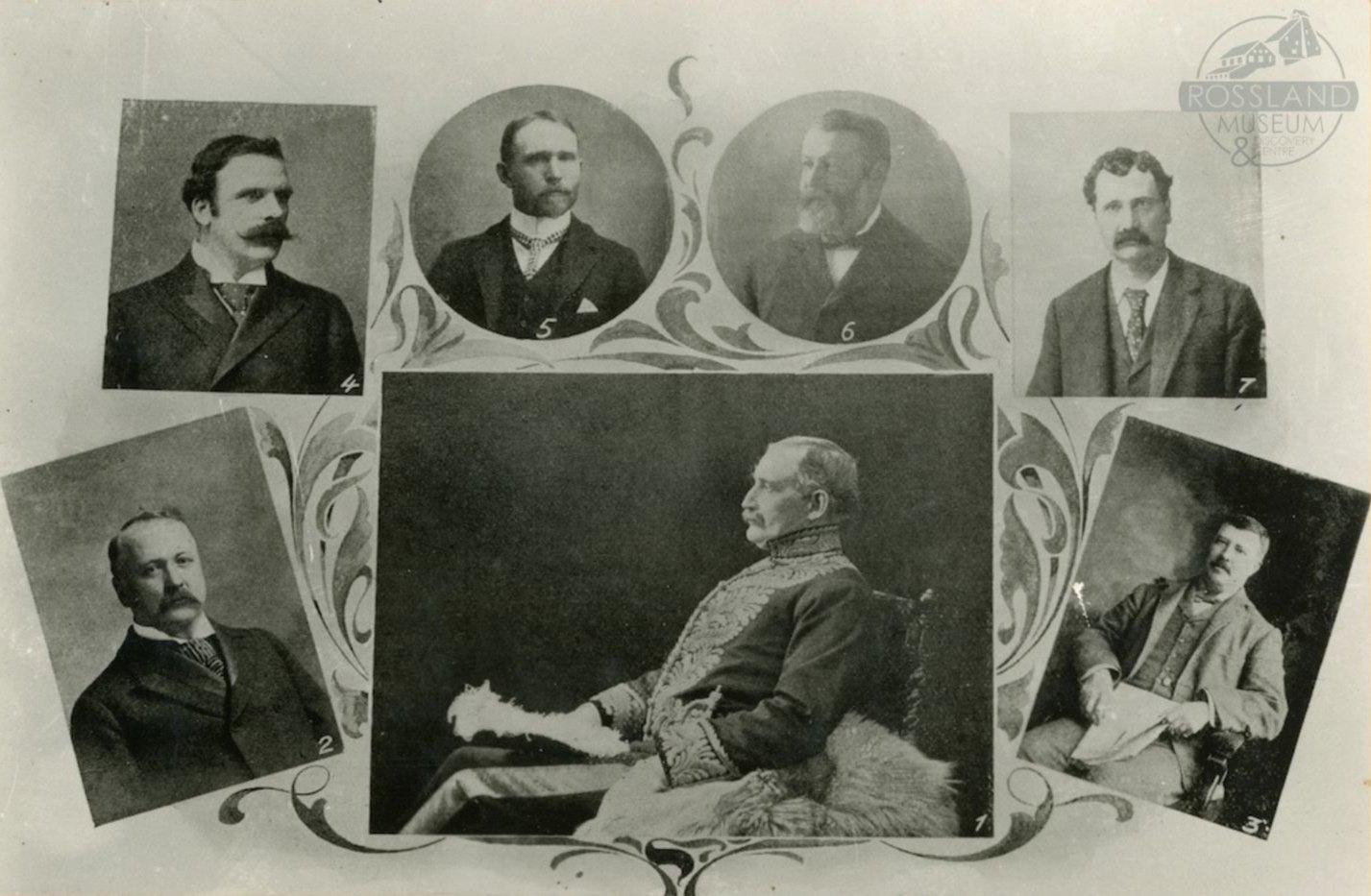
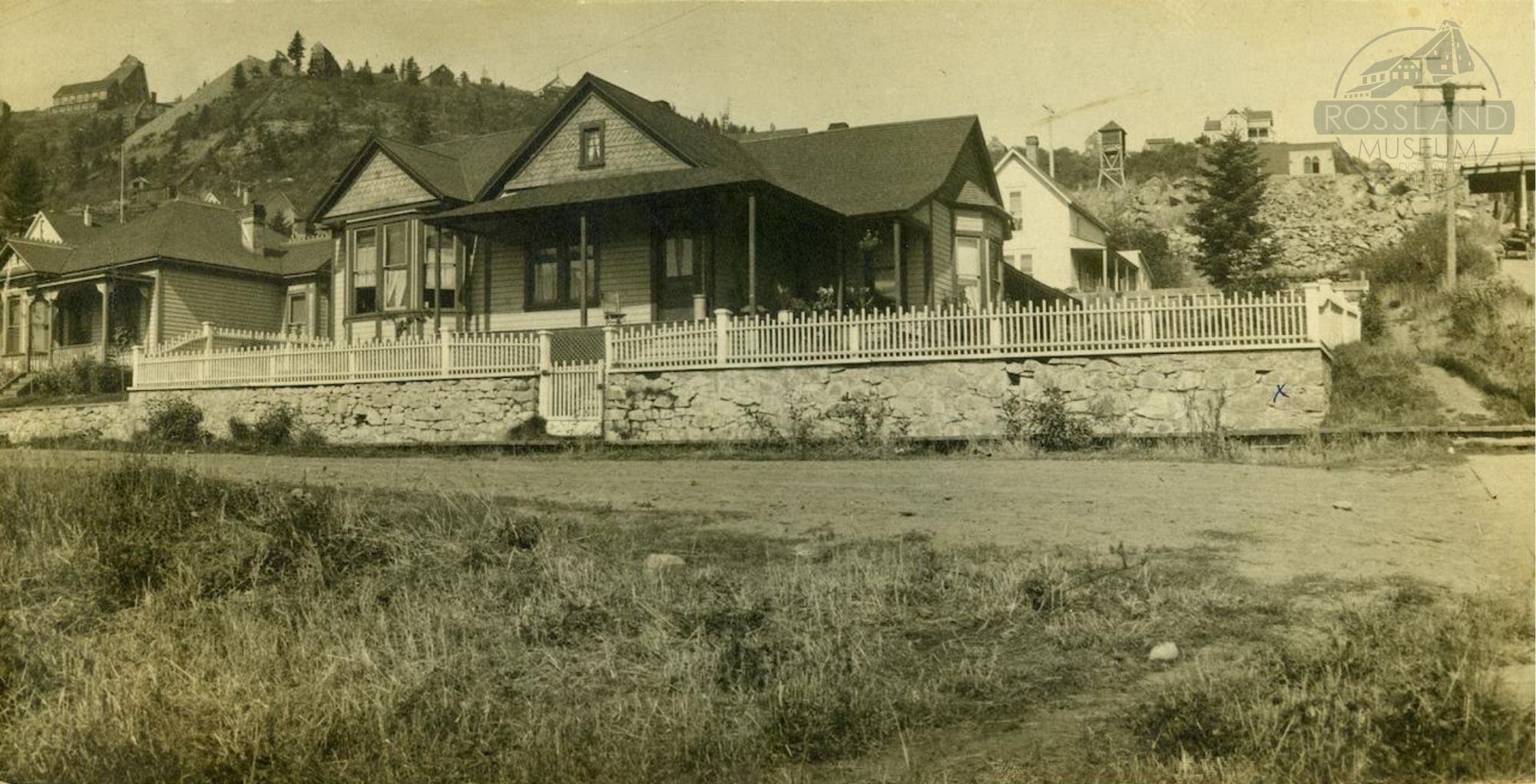
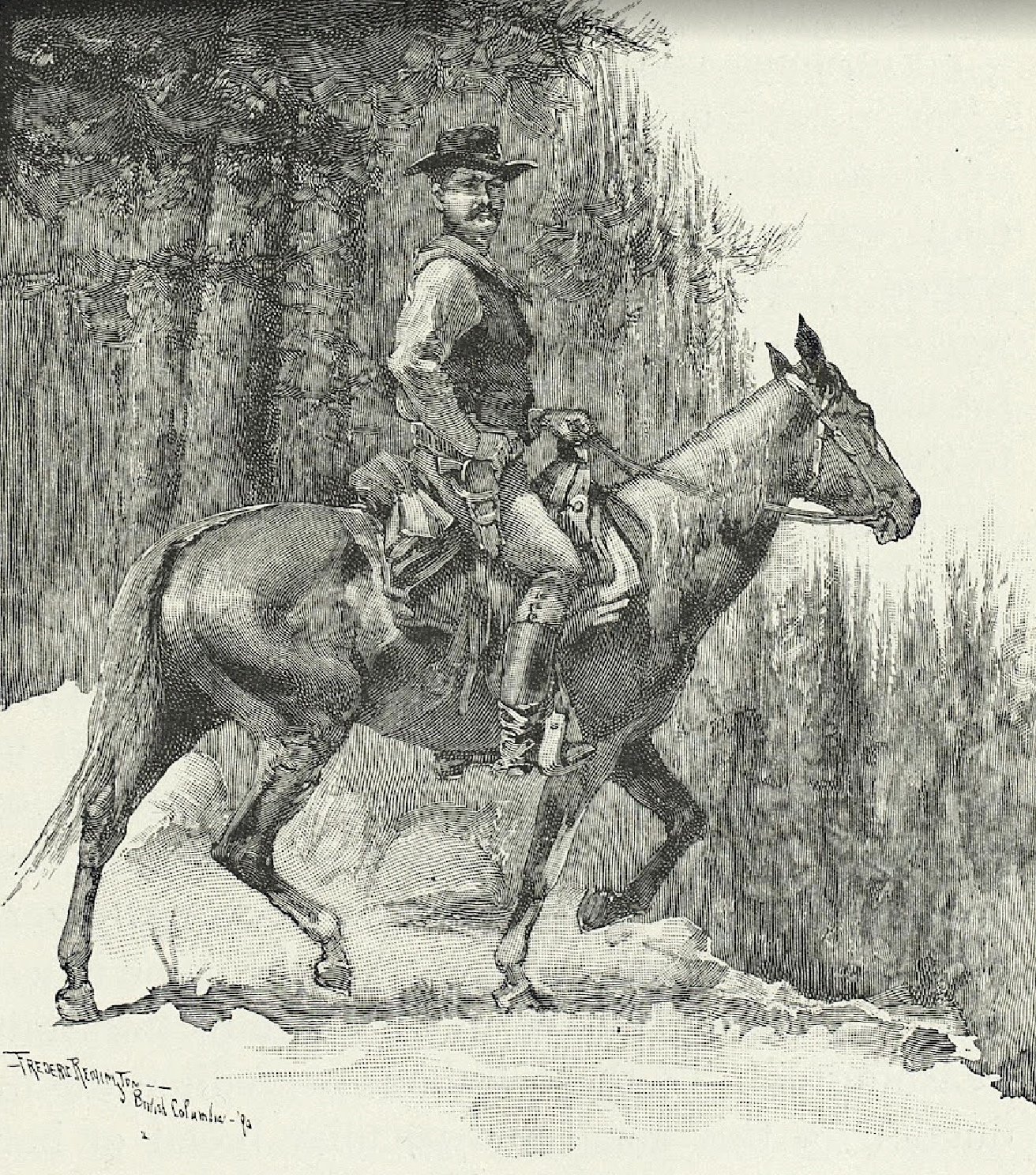
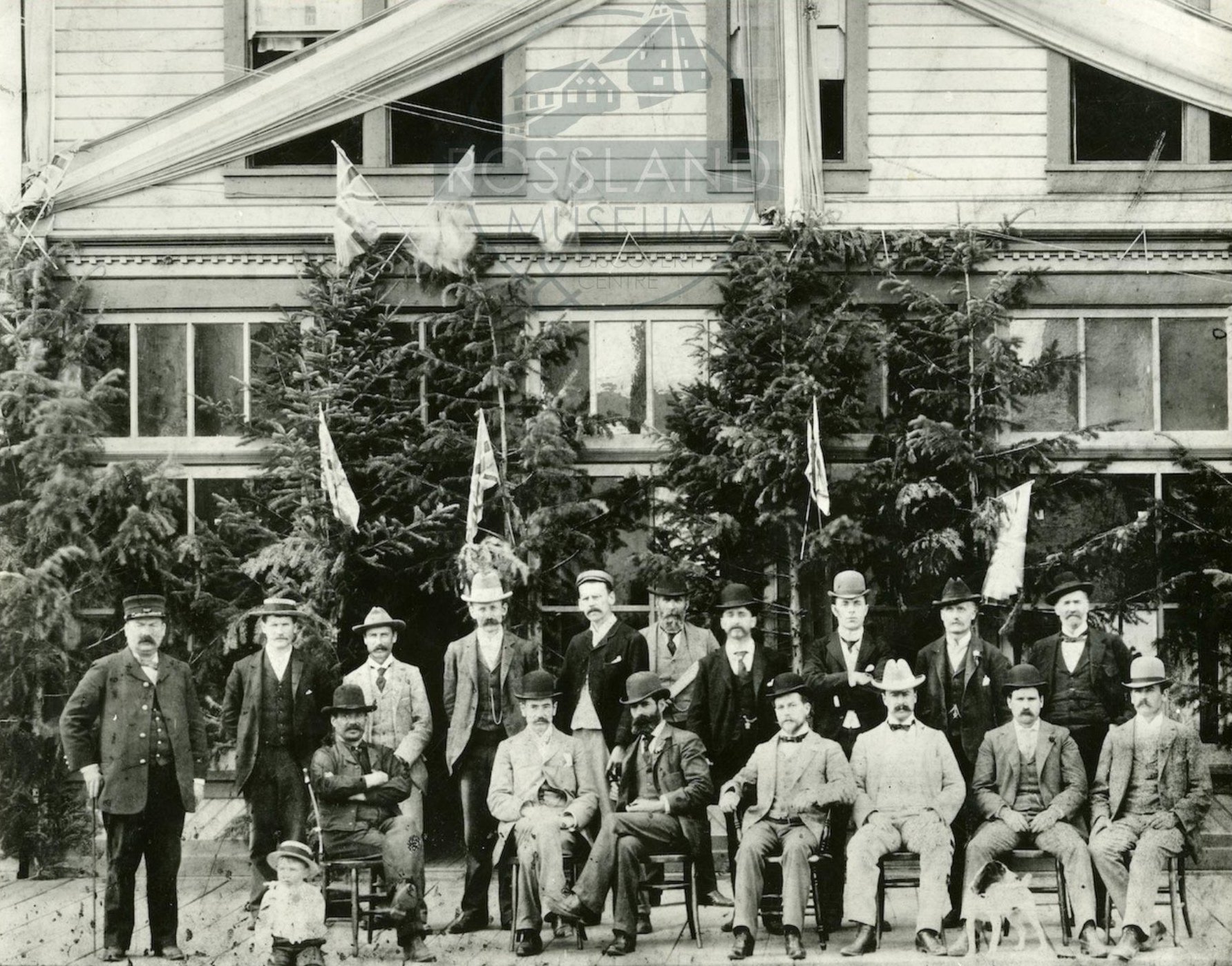
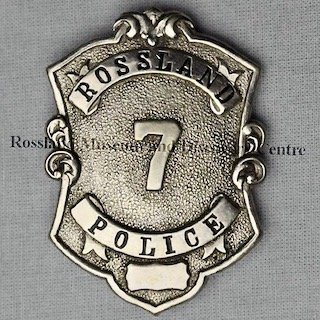
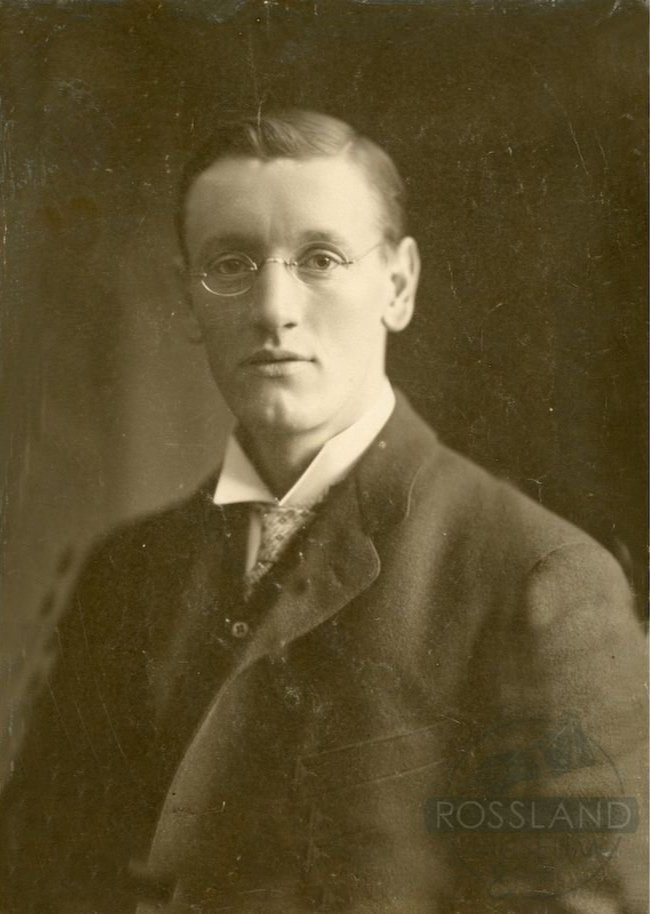
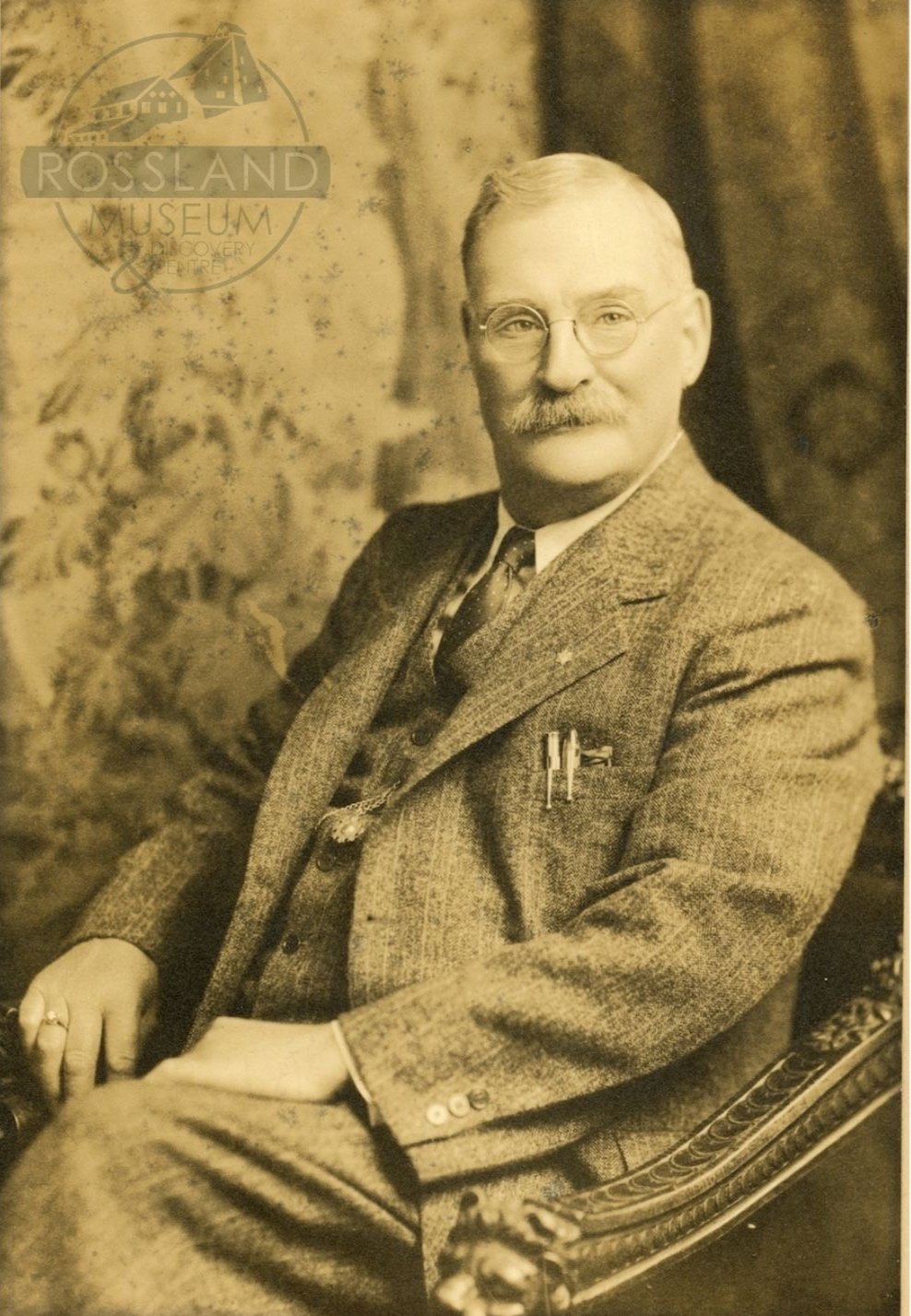
Sources:
BC Police - Rossland Branch Fonds. Collection of the Rossland Museum & Discovery Centre.
Calgary Police Service. Calgary Police Service History.
City of Rossland Fonds. MS 55. Collection of the Rossland Museum & Discovery Centre.
Downs, Art. Outlaws and Lawmen of Western Canada, Volume 2. Surrey, British Columbia: Heritage House Publishing Company, 1996.
Jordan, Rosa and Derek Choukalos. Rossland: The First 100 Years. Rossland, British Columbia: Harry Lefevre, 1995.
Library and Archives Canada. Fourth Census of Canada, 1901.
Parliament of Canada. Andrew Ingram.
Rossland Miner. Collection of the Rossland Museum & Discovery Centre.
Royal Canadian Mounted Police. History of the RCMP.
Vancouver News Advertiser.
Williams, David Ricardo. Call in Pinkerton’s: American Detectives at Work for Canada. Toronto, Ontario: Dundurn Press Limited, 1998.
Winnipeg Police Museum. Winnipeg Police Museum.
Contribute your own memories/experiences of Crime and Law Enforcement in Rossland:
The form below will email us your message. If you prefer to speak to us directly or have other questions or comments about this page, please call (250) 362-7722 or email the archives directly at archives@rosslandmuseum.ca













